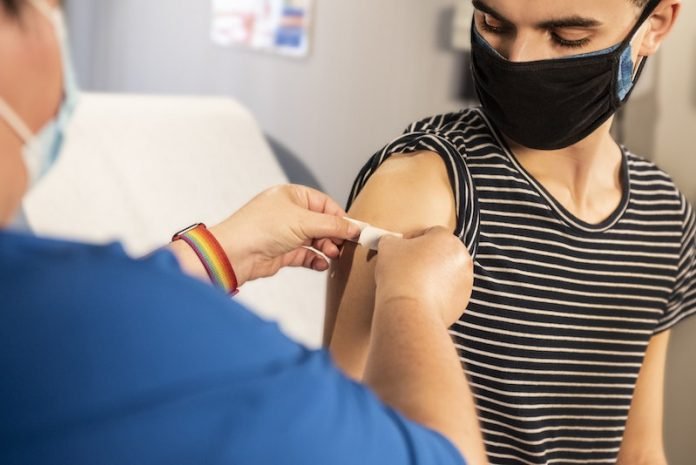
Scientists from the UK Health Security Agency found that a longer interval between primary COVID-19 vaccine doses can boost antibody production up to nine times.
The research was presented at the European Congress of Clinical Microbiology & Infectious Diseases and was conducted by Dr. Ashley Otter et al.
Understanding the immune response to vaccination against COVID-19 is integral to controlling the virus and reducing the number of deaths.
In the study, the team measured antibody levels in blood samples taken from almost 6,000 healthcare workers from across the UK.
3,989 of the 5,871 participants had their first dose of the vaccine at least 21 days earlier. 1,882 had their second dose at least 14 days earlier.
The participants were classified by infection history as either previously having had COVID or naïve, with no history of infection.
Almost all (>99%) of those who hadn’t had COVID seroconverted after vaccination, meaning they made antibodies against the virus.
Post-dose 1, those with the previous infection had up to ten times higher antibody levels than naïve individuals, whilst after dose 2, those with the previous infection had antibody levels more than twice as high as those who hadn’t had a previous infection.
When analyzing dosing intervals, the team found that longer dosing interval was linked to up antibody levels that were up to nine times higher in naïve participants with a more pronounced effect observed in younger participants.
Dosing intervals didn’t affect antibody levels in those with the previous infection. However, a longer interval between infection and vaccination was linked to higher antibody levels.
Those who had their first dose of the vaccine eight months after an infection had antibody levels seven times higher than those who were vaccinated three months after infection, with a plateau after eight months.
This suggests that eight months after primary infection may be an optimum time to receive the first vaccine in those with prior infection.
However, the analysis shows that regardless of the timing between infection and vaccination, all individuals mount a very high antibody response after dose 2.
In addition, women and those from an ethnic minority were linked to much higher antibody titres, whilst immunosuppression was linked to much lower post-vaccination antibody responses.
This study shows that a longer time between vaccine dose 1 and dose 2 results in higher antibody responses in naïve participants, which strongly supports the decision by JCVI and the UK government to lengthen the interval between vaccine doses.
Sign up for our newsletter for more information about this topic.
If you care about COVID, please read studies about more effective COVID-19 treatment, and these people need additional COVID-19 vaccine doses.
For more information about COVID, please see recent studies about universal antibody therapy for all COVID-19 variants, and results showing COVID-19 infection could boost antibodies for 20 months.
Copyright © 2022 Knowridge Science Report. All rights reserved.



